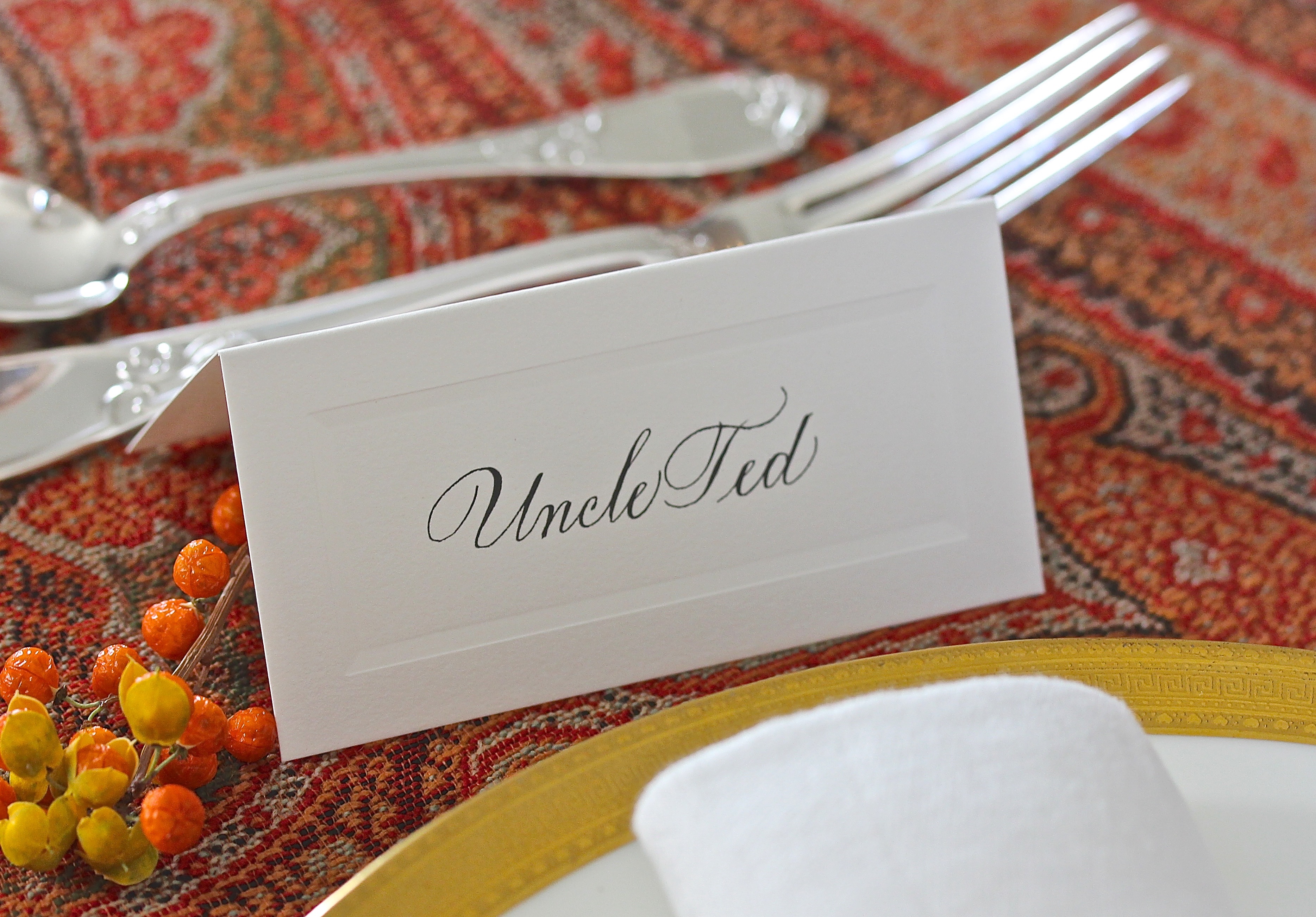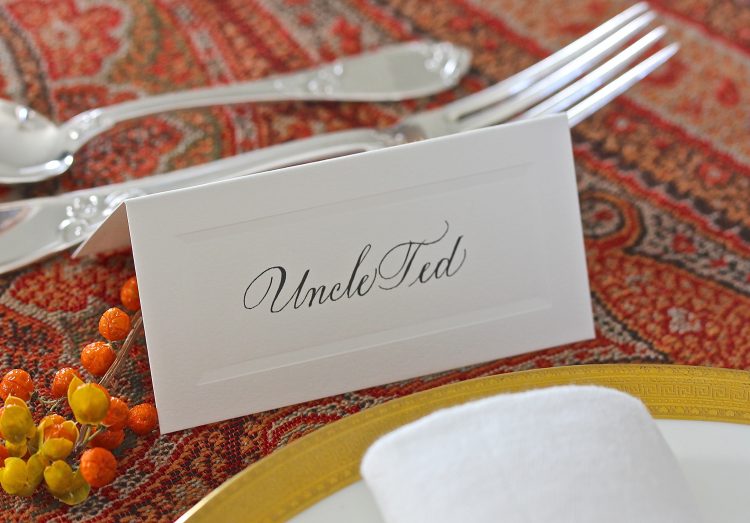
Family-centric holidays can be fraught: who carves the turkey? Do we need to wait for everyone to have food on their plates before we start eating? Is someone saying grace? And then there are the oddball friends and relatives whom we see once or twice a year. They ask invasive questions, take the day to let their passive-aggressive flag fly, or drink until things becomes a soggy blur. These are the times when I am grateful to be a WASP.
We know how to handle awkward family situations because we’ve had so much experience – decades of sloshed Uncle Ted pitching over the turkey as he flings the carving knife at the antique dining room table, where it sticks and vibrates in the wood like a bad toss of mumblety-peg. There are the thrifty re-gifted Christmas presents, the red plaid pants (on the men,) and the freezing houses where we huddle around the television for warmth – both emotional and physical. People make fun of us because it’s politically correct to mock a white Anglo-Saxon Protestant – maybe because we’re one of the few ethnic groups left who still laugh at ourselves – but we have so much to laugh about! Some things you can learn from us:
Family holidays are when WASPs truly come into their own because we’ve learned to ignore just about anything. You want to know why my daughter’s not married yet? Pass the potatoes, please. Is your husband still in that same dead-end job? More wine, anyone? This is the key to a nice holiday: ignore everything. Don’t engage. Change the subject. Turn the table. Avoidance is the most successful strategy when dealing with the family provocateur. It’s also the polite thing to do, which delights my social secretary’s soul, but that’s not the point here. The object of this strategy is to give yourself a holiday free of anger and anxiety.
Other etiquette questions related to the holidays – most of them easily resolved if dealt with before you sit down to dinner. If there are football fanatics in your family, work out the dinner time around the games, so guests aren’t inhaling the meal you spent eight hours preparing, to get back to the TV before halftime is over. The question of who carves the turkey should be worked out in advance, so no simmering resentment over who has possession of the carving set is brought to the table, or serve a pre-carved turkey. It might not be the Norman Rockwell moment you imagined, but at least everyone gets a hot meal.
Wait to eat until all have been served. And if someone is saying grace, it’s a faux pas to start eating before that happens. The person who is to say grace should be asked in advance, so they are prepared. Don’t ambush a guest or family member by asking them to give the blessing as dinner is served, as my father did to me when I was a teenager. I was so surprised that I blurted out the first thing that came into my head, which I must have read somewhere: “Good food, good meat, good God, let’s eat!” He was not amused. Fortunately, being a WASP, I could ignore him.
The process of offering leftovers must be lightly done. If you offer and your guest demurs, don’t press the food on them anyway. This is another tenet of WASPdom: take what a person says at face value, even if you think they don’t mean what they say.
And finally, when the day should be over, but your guests linger, there is a gentle course of action. Yawn widely, stretch out your arms and say, “I’m for bed. Please turn off the TV when you leave.” If your guests think you’re rude, just act like a WASP and pretend it never happened – and have yourself a merry little Christmas!
My new book, “Treating People Well,” with co-author Jeremy Bernard, will be out on January 9th, with lots more lessons for living each day happily, with respect and tolerance for others.
Preorder Now.




One Comment